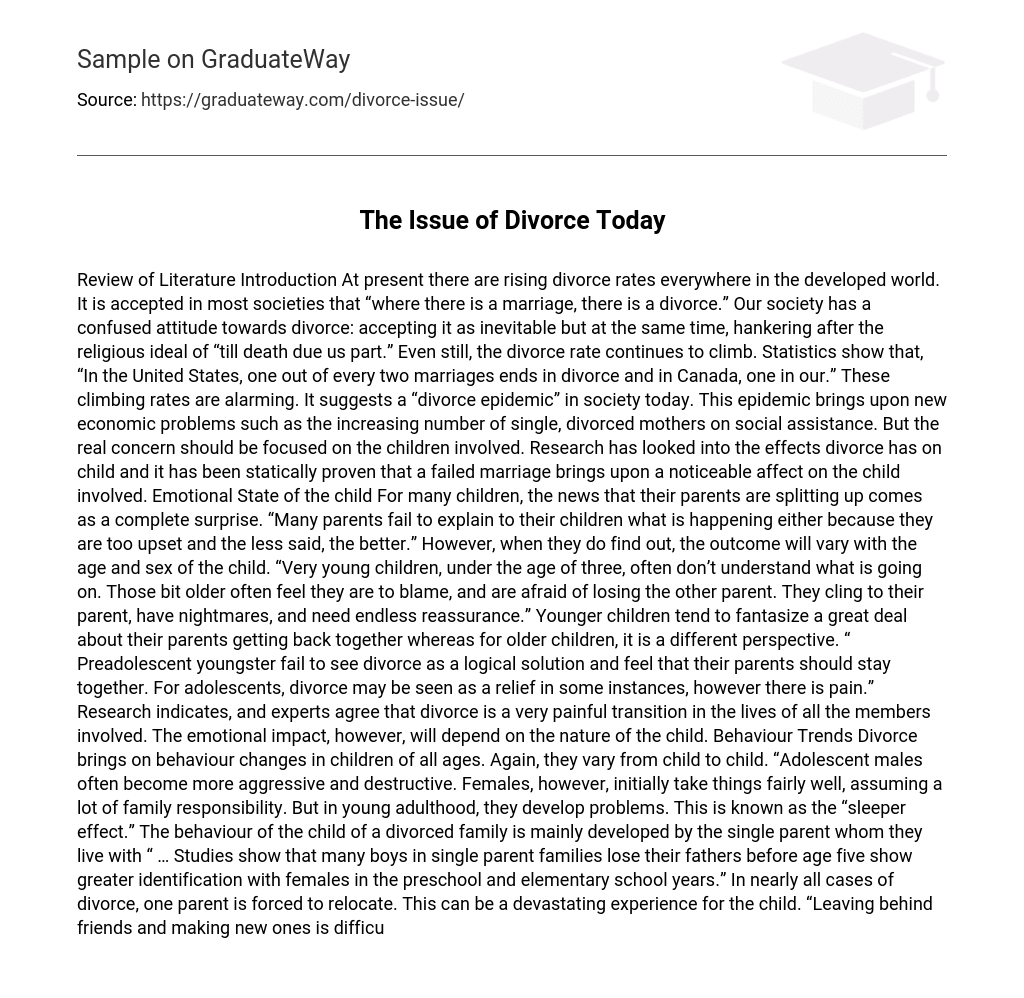Introduction: The divorce rates are on the rise worldwide, particularly in developed countries. Although divorce is widely accepted in most societies, there remains a yearning for lifelong marriages rooted in religious beliefs. Yet, the rates of divorce persistently increase. Statistics indicate that 50% of marriages end in divorce in the United States, while the figure stands at one out of every four marriages in Canada. These escalating rates raise concerns.
There is a widespread issue of divorce in society, which has led to economic difficulties such as an increase in single, divorced mothers relying on social assistance. However, it is crucial to prioritize the well-being of children who are affected by divorce. Studies have demonstrated that divorce has a profound impact on children, often resulting in emotional distress when they become aware of their parents’ separation. This is primarily caused by ineffective communication due to the emotional turmoil experienced by the parents.
The impact of parents’ divorce on children can vary depending on their age and gender. Very young children, under three years old, may struggle to understand the situation. Slightly older children may feel guilty and fear losing one parent, leading them to become clingy, have nightmares, and seek constant reassurance. Younger children often daydream about their parents reconciling while older ones have a different perspective. Pre-adolescents typically see divorce as illogical and believe their parents should stay together. Adolescents may find relief in some cases but still experience pain. Numerous studies confirm that divorce is a highly distressing transition for everyone involved.
The emotional impact of divorce on children varies depending on their individual nature. Regardless of age, divorce often leads to behavior changes in children. Adolescent males may become more aggressive and destructive, while females initially handle the situation well and take on more family responsibilities. However, they may encounter problems in young adulthood, known as the “sleeper effect.”
The child’s behavior in divorced families is mainly shaped by the single parent they reside with. Research shows that boys from single parent families, who experienced the loss of their fathers before age five, tend to develop a stronger identification with females during their early school years. In nearly all divorce situations, one parent is forced to relocate, which can be highly distressing for the child. Having to say goodbye to friends and adapt to forming new relationships becomes even more difficult when faced with their parents’ divorce.
Children commonly experience psychological reactions to divorce, such as feeling isolated and lonely. Despite individual differences in behavior, they often go through emotions like sadness, depression, denial, embarrassment, anger, guilt, concern about being cared for, regression, maturity, and physical symptoms. With age comes acceptance that divorce is an adult decision beyond their control.
The fantasies that young children have gradually diminish over time. “It is not until the child reaches early adulthood that the fantasies completely vanish. However, this does not necessarily mean that he will approve or even like his new stepfather.” Acceptance, in almost all instances, does not occur overnight.
Successful acceptance and recovery from a divorce is a gradual and deliberate journey. Both biological parents must engage in rational and caring communication to aid their child in fully accepting and healing from the situation. Patience and consideration are essential elements in supporting a child through their parents’ divorce.





